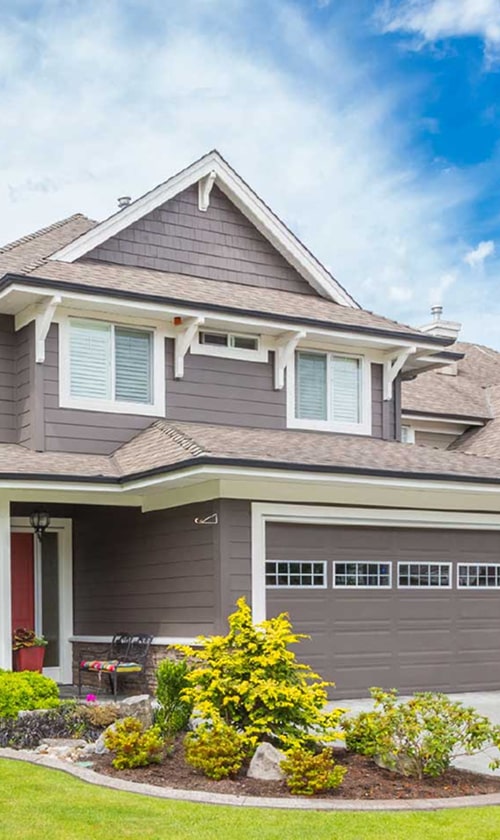Understanding Kennesaw’s Climate and HVAC Needs

As experts in HVAC systems, we recognize that Kennesaw’s unique climate demands tailored heating, ventilation, and air conditioning solutions. Our commitment to energy efficiency and adherence to local standards guides our approach.
Climate Characteristics Relevant to HVAC Design
Kennesaw, GA experiences a humid subtropical climate. This means we see hot, humid summers and mild to cool winters. It’s critical to consider these temperature variations and high humidity when designing HVAC systems.
- Summers: With average highs peaking in the upper 80s to low 90s (°F), air conditioning must be robust and efficient. Dehumidification features are essential to combat the muggy weather.
- Winters: Though typically mild, heating systems remain crucial. Lows can dip into the 30s (°F), requiring reliable heating to maintain comfort.
- Ventilation: Our approach emphasizes proper ventilation to manage humidity year-round and maintain indoor air quality.
Notably, energy efficiency is a pivotal factor. We incorporate high-efficiency equipment and recommend thorough insulation to maximize comfort while minimizing costs.
Assessing Local Building Codes and Standards
Kennesaw’s building codes mandate specific standards for HVAC systems to ensure safety, reliability, and energy conservation. We always align our HVAC designs with the latest regulations, which may include:
- Insulation Requirements: Proper insulation is mandated to optimize the energy performance of HVAC systems.
- Equipment Standards: We ensure that heating and cooling units meet specified SEER (Seasonal Energy Efficiency Ratio) and HSPF (Heating Season Performance Factor) ratings.
By adhering to these guidelines, we assure not only compliance but also the highest quality of comfort and efficiency for Kennesaw residents. Our familiarity with local standards is an integral part of our design process.
Key Components of HVAC Systems

In Kennesaw, GA, optimal heating, cooling, and ventilation are critical to both comfort and health. Our discussion will navigate the heart of HVAC systems including heating efficiency, air quality, and proper ventilation, ensuring your setup meets the unique climatic needs.
Exploring Heating Options and Efficiency
When we consider heating systems, the gas heater stands out for its cost-effectiveness and reliability in cooler temperatures. Air flow and heat distribution largely depend on a well-designed duct system. It’s crucial to have efficient thermostats and carbon monoxide detectors in place since combustion in gas heaters can produce carbon monoxide. Regular maintenance is pivotal to prevent any leaks and to ensure air filters are consistently trapping particulates.
- Thermostats: Control heating, energy use.
- Carbon Monoxide Detectors: Essential safety devices.
- Air Filters: Maintain clean air, trap particles.
Cooling Systems and Air Quality Control
Our cooling solutions center on maintaining air quality while offering robust cooling power. Central air conditioners, coupled with efficient exhaust fans, excel in drawing out warm air and replacing it with cool, filtered air. The air filter is a vital component, purifying the air from contaminants and allergens, ensuring a healthier breath. It is recommended to periodically replace or clean the air filters for optimal air flow and efficient system performance.
- Exhaust Fans: Aid in optimal air flow, air quality.
- Air Filters: Essential for clean, allergen-free air.
Ventilation for Health and Comfort
Ventilation is about more than just fresh air—it’s about our well-being. Strategic placement of exhaust fans can significantly enhance the quality of indoor air by expelling stale air and drawing in fresh external air. This balance is vital in preventing mold growth and eliminating odors. Ensuring that our air ducts are clean and obstruction-free is imperative for the seamless circulation of air throughout different rooms.
- Exhaust Fans: Crucial for removing stale air.
- Duct System: Pathway for clean air distribution.
Selecting HVAC Equipment and Manufacturers

In the search for an HVAC system in Kennesaw, GA, it’s crucial we prioritize equipment and manufacturers who provide reliable specifications and energy-efficient certifications appropriate for North American climates.
Comparing Manufacturer Specs and Warranties
When evaluating HVAC equipment, we must scrutinize the technical specifications provided by manufacturers. This involves looking at performance stats such as BTU output, SEER ratings for cooling efficiency, and HSPF ratings for heating efficiency. Here’s a brief comparison table for reference:
| Manufacturer | Cooling Efficiency (SEER) | Heating Efficiency (HSPF) | Warranty Period |
|---|---|---|---|
| Manufacturer A | 18 SEER | 9.5 HSPF | 10 years |
| Manufacturer B | 21 SEER | 10 HSPF | 12 years |
| Manufacturer C | 16 SEER | 8.5 HSPF | 10 years |
We examine warranties with equal rigor, ensuring the terms are satisfactory—ideally, we look for extended warranties that cover both parts and labor for a minimum of 10 years.
Energy-Efficient Technologies and Certifications
We understand the significance of selecting energy-efficient HVAC systems that are not only cost-effective but also environmentally responsible. We focus on equipment that boasts Energy Star certifications, which meet or exceed the strict energy efficiency guidelines set forth by the US Environmental Protection Agency. Additionally, we consider technologies such as variable-speed compressors and multi-stage fans that can adapt to the climate demands of Kennesaw with greater precision and less energy waste.
To secure the benefits of these technologies, we only engage with authorized dealers and manufacturers renowned for their commitment to energy efficiency and North American environmental standards. This ensures our clients receive state-of-the-art HVAC solutions that offer long-term savings and peak performance.
Installation and Maintenance Considerations
In Kennesaw, GA, where the climate demands heavy HVAC usage, selecting a system with easy installation and maintainable features is vital for efficiency and longevity.
Professional Installation and Safety Standards
During the installation of an HVAC system, it’s imperative that we adhere to strict safety standards and building codes. Professional installation ensures that the system is set up correctly, which is essential for it to operate at its optimal performance level. This involves intricate plumbing work and precise sheet metal fabrication to fit the specific needs of your space. The correct calculation of BTUs (British Thermal Units), which gauge the amount of heat required to raise the temperature of one pound of water by one degree Fahrenheit, is crucial to select an HVAC system that’s properly sized for your property.
- Key points:
- Compliance with building codes.
- Accurate BTU assessment.
- Expert handling of plumbing and sheet metal elements.
Routine Maintenance and Long-Term Care
We recognize the importance of routine maintenance for extending the life of your HVAC system and safeguarding your investment. Regular checks include inspecting and cleaning dampers, replacing filters, and ensuring the system operates at the correct BTU output. This preventive care not only contributes to sustained system efficiency but can also help pinpoint issues before they escalate, potentially saving on costly repairs. For ideal management of your HVAC system, we advocate for a scheduled maintenance agreement, which lays out the terms and emphases of regular service in a clear contract.
- Maintenance Essentials:
- Inspect and clean dampers.
- Regular filter replacement.
- Adhere to scheduled service outlined in the maintenance contract.
Financial Aspects and Resources
To ensure the selection of an HVAC system that aligns with financial viability in Kennesaw, GA, we must scrutinize cost analysis and discern the most advantageous financing options available.
Cost Analysis and Budget Planning
When planning our budget for an HVAC system, we consider initial investment and long-term operational costs. Initial costs include the purchase price, installation fees, and any ancillary equipment. Operational costs encompass energy consumption, maintenance, and potential repairs.
- Purchase and Installation Costs
- Typical HVAC System: $3,000 – $7,000
- High-efficiency models: $10,000+
- Annual Operational Costs
- Average electricity rate in Kennesaw: $0.12/kWh
- Estimated annual maintenance: $150 – $500
By considering the above, we craft a budget that accounts for upfront and recurring expenses, ensuring the investment is manageable over the system’s lifespan.
Financing Options and Potential Savings
Our review of financing solutions reveals various avenues to fund an HVAC investment without straining our resources. Loans and financial incentives can significantly offset costs.
-
Loans
- Traditional loans: secured through a bank or a credit union, with interest rates dependent on credit score.
- FHA Title I loans: federally backed loans for home improvements, reasonable rates.
-
Savings Opportunities
- Utility Rebates: Discounts offered by local utility companies for energy-efficient HVAC systems.
- Tax Credits: Federal tax credits for qualifying HVAC equipment.
With the proper financing, our investment in a suitable HVAC system converges with potential savings, easing the financial burden while enhancing comfort and efficiency.
Frequently Asked Questions
Before we dive into the specifics, let us guide you through the most pressing concerns homeowners have regarding HVAC systems in Kennesaw, GA. These questions focus on the regional climate’s influence on system design and efficiency, essential features, and best practices for installation.
What are the key factors to consider when sizing an HVAC system for homes in Kennesaw, GA?
When sizing an HVAC system in Kennesaw, it’s crucial to take into account square footage, insulation levels, window types, and local weather patterns. Proper sizing directly influences comfort, energy consumption, and the longevity of the system.
How do the unique climate conditions of Kennesaw, GA impact HVAC system efficiency and design?
Kennesaw’s climate calls for HVAC systems that can handle high humidity and temperature fluctuations. Efficiency is affected by the system’s ability to maintain consistent indoor conditions without overworking, which necessitates meticulous design and selection of components.
What HVAC design features are essential for maintaining indoor air quality in Kennesaw’s humid climate?
In our humid climate, features like dehumidifiers and air purifiers become essential. Consider systems with enhanced filtration and moisture control to prevent mold growth and ensure a healthy indoor environment.
How should homeowners in Kennesaw, GA prioritize energy efficiency when selecting a new HVAC system?
Homeowners should prioritize systems with high SEER (Seasonal Energy Efficiency Ratio) ratings. Energy-efficient units reduce both carbon footprint and long-term costs, making them a sustainable and economical choice for our community.
Can you outline the best practices for HVAC installation in regions with weather patterns similar to Kennesaw, GA?
Best practices include proper system sizing, strategic ductwork design, and ensuring tight seals to prevent air leaks. It’s also important to have a professional perform the installation to ensure optimal operation and compliance with local codes.
What are the advantages and disadvantages of different HVAC system types for Kennesaw, GA residences?
Central air systems offer comprehensive climate control but can be costly to install and run. Heat pumps are energy-efficient but less effective in extreme cold. Ductless mini-splits offer flexibility and are great for targeted heating and cooling, though they may require multiple units for whole-house coverage. Each system has its own balance of cost, convenience, and capacity to meet specific home climate control needs.




